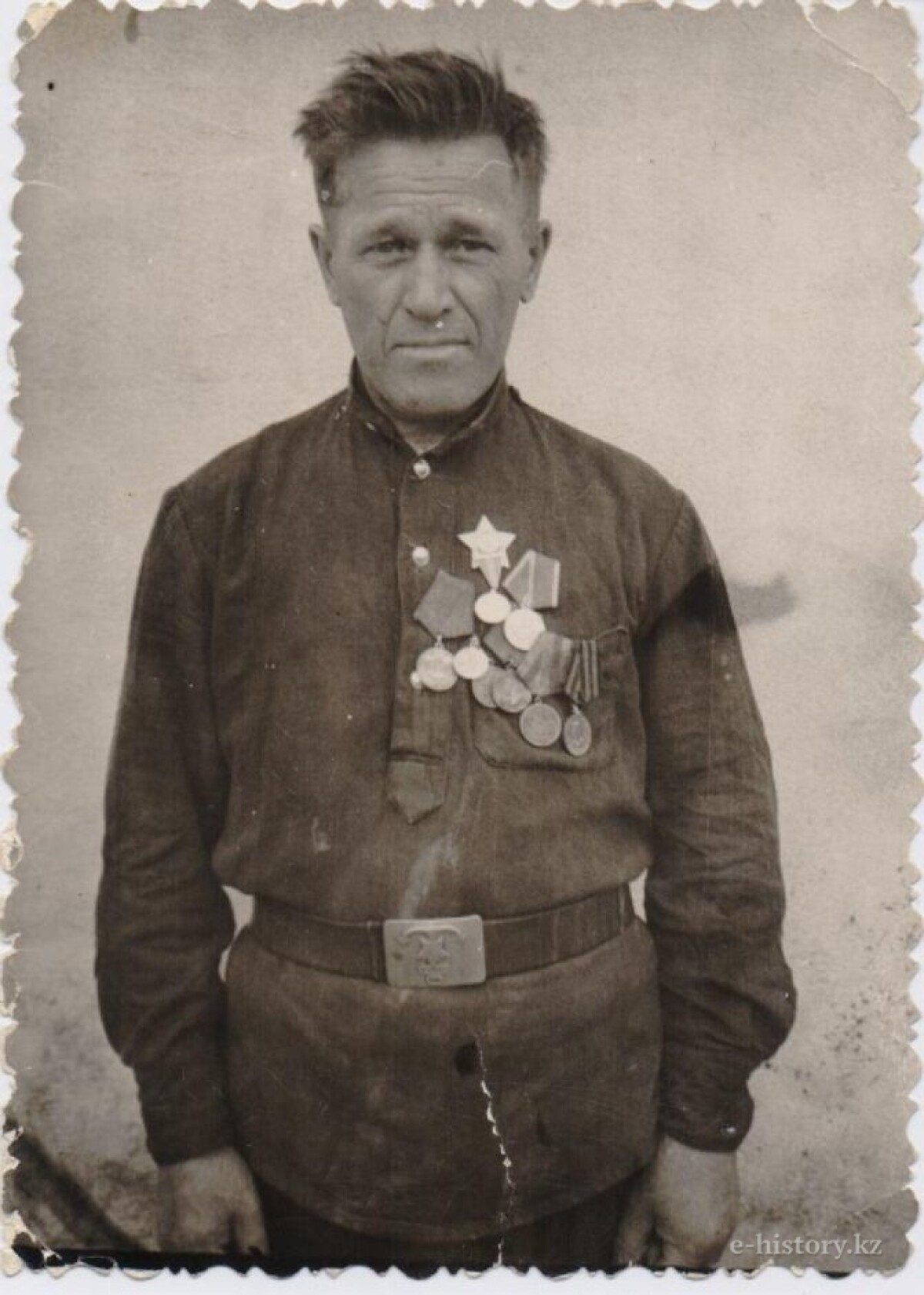
21 April 2015
The events of the Great Patriotic War reach far back into the history. Seventy years have passed... How many broken destinies and wounded people it brought. But they had a strong trust in victory and managed to survive and win.
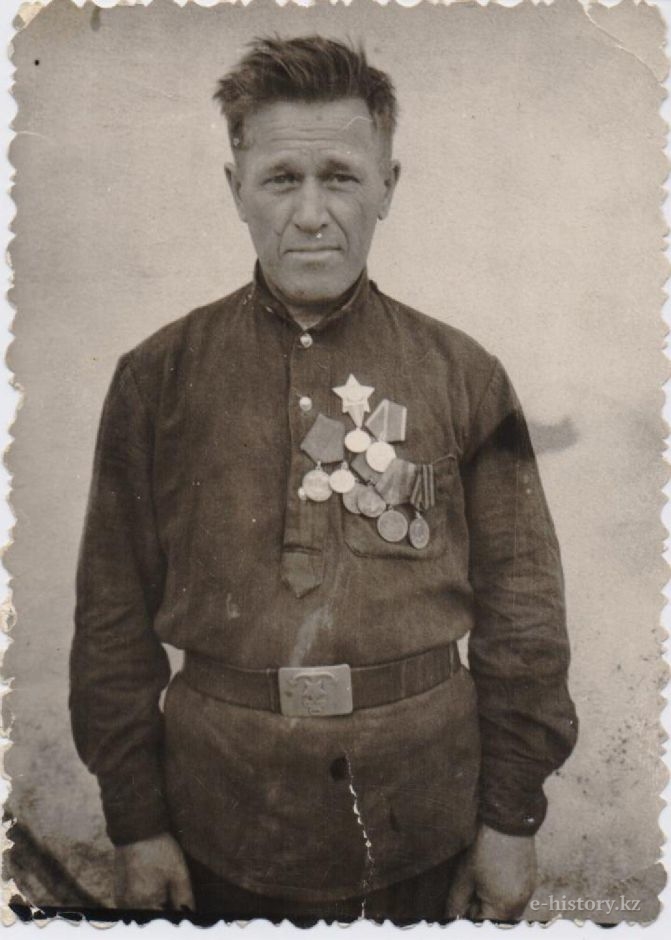
I’d like to tell about my maternal grandfather Semen Bugayev. I recorded everything literally without changing or correcting anything. All the information was provided by Semen’s daughter Nina Kartanovich. There is what she told.
"Before the exile my parents Semen Bugayev, born in 1911, and Vassa Bugayeva, born in 1912, lived in the village of Chashino-Ildikan, Chita region. Before the arrest, my father worked at a mine and mother was a housewife.
In 1933, my father was jailed. He was charged under article 58-11 of the Penal Code of the Russian Soviet Federative Socialist Republic, repressed and exiled with his family to Kazakhstan. They already had one son Aleksey, born in 1931, and mother was pregnant again.
Alexandr was born in 1933. My mother followed her husband. She moved with her elder son and left the new-born with her mother. Wives of convicted prisoners walked forty kilometres by step and thought that they were free. But when women came closer to the jail they were driven inside. After the long separation, my parents met each other. And together they waited what would happen next.
In early November, they were placed on coaches for livestock. They were full of people and nobody could even move. There was so cold and the guards travelled in warm coaches. Even horses had better conditions than prisoners. They travelled all day long and the train stopped in a steppe when it was night. When the doors were opened most people were dead. At first, the guard drove out horses for shooters who controlled the train. They could beat prisoners without any reasons. People had to ask a permission to go to a toilet.
On 14 November 1933 my parents reached their destination. Thaw was the 33rd point in Shortandy region. This place is located not far from the village of Zhdanovo.
When they were brought to this destination the winter was coming. People became sick. Typhoid fever affected both adults and children. My father was among them. He spent much time in a local hospital. Mistakenly he was brought to the room for the dead. It is the miracle that he survived.
While he was in the hospital my mother cleaned roads. She left her child with those who were too sick to work. There were no windows and doors in the barrack where they lived. Men made ovens, but people didn’t have wood to fire them. Aleksey became sick and died. Alexandr died in their native village. According to the letter from there, he didn’t eat properly and cried much. Like he felt that he would never meet his family again. "He died of grief" — my mother said.
My parents were considered as the enemies of the Red Army. Therefore, when the Great Patriotic War started they were guarded more intensive. My father was sent to the front in spring of 1942. He started his battle path in Stalingrad.
When my father went to the front my mother left with two children: my elder brother Anatoly and sister Galina. They survived everything together: cold, hunger and hard labour. However, my mom remained kind and decent person.
My father fought in the whole Europe. He reached Germany. But he didn’t return home in 1945 because was sent to the war with Japan.
He came back home in summer of 1946 but didn’t mention anything about the war. Once I asked him to tell me about it. He answered: "What can I tell about this horror..." He never boasted being reserved and reticent person. My father didn’t want to recall the past and the wounds still were not healed. He was awarded the Medal "For the Defense of Stalingrad" and the Medal "For Bravery".
The time was passing and the life was going on. My father worked as a driver, restored power in villages, grew crops.
After the war, my mother gave birth to Yuriy in 1947, Fedor in 1948 and me in 1953. Surely, my elder brothers could tell much about him but they are no longer alive.
My father died on 15 May 1971. He never received a pension because he didn’t have a certificate of rehabilitation. My mother passed away on 23 January 1991. They were received by Kazakhstan land. It became the new house and Motherland for them. The memory of our father will remain in our hearts and thought forever".
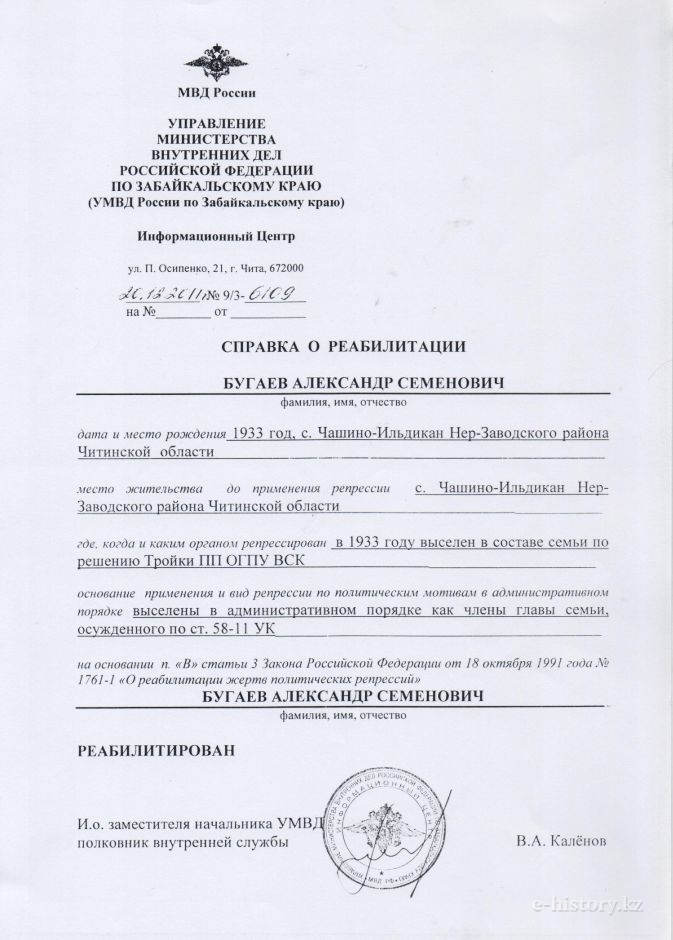
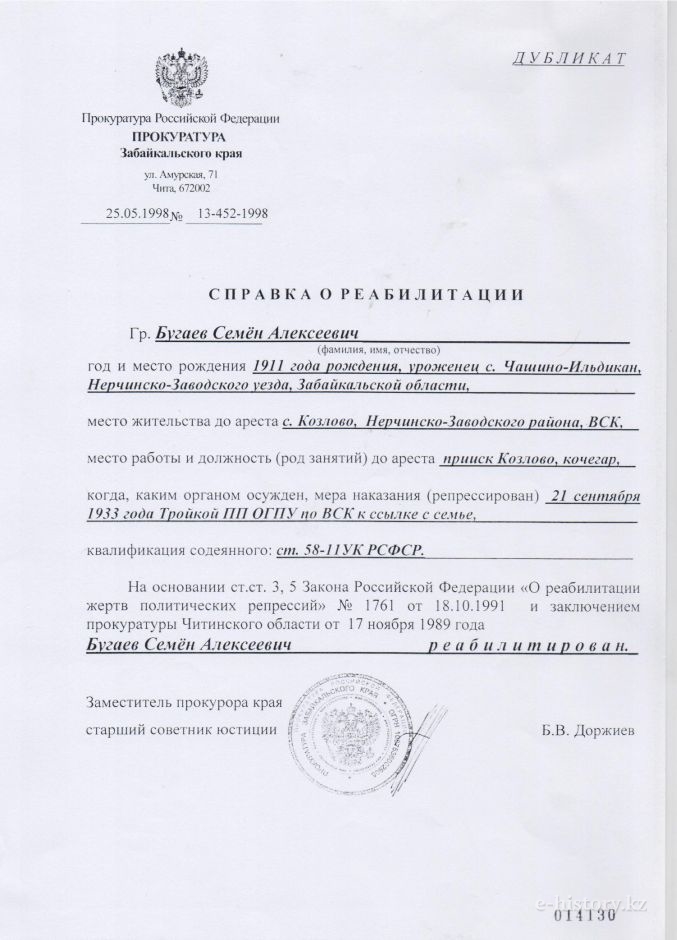
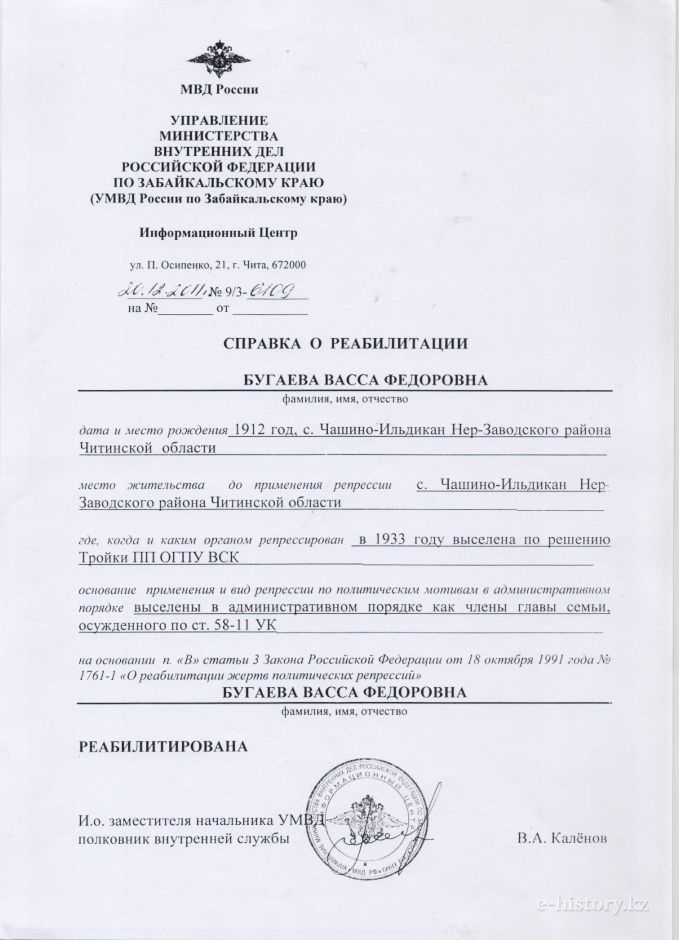
Retslav Artur,
grade 6 student of the Stepnaya Secondary School,
the village of Stepnoe, Akmola region
